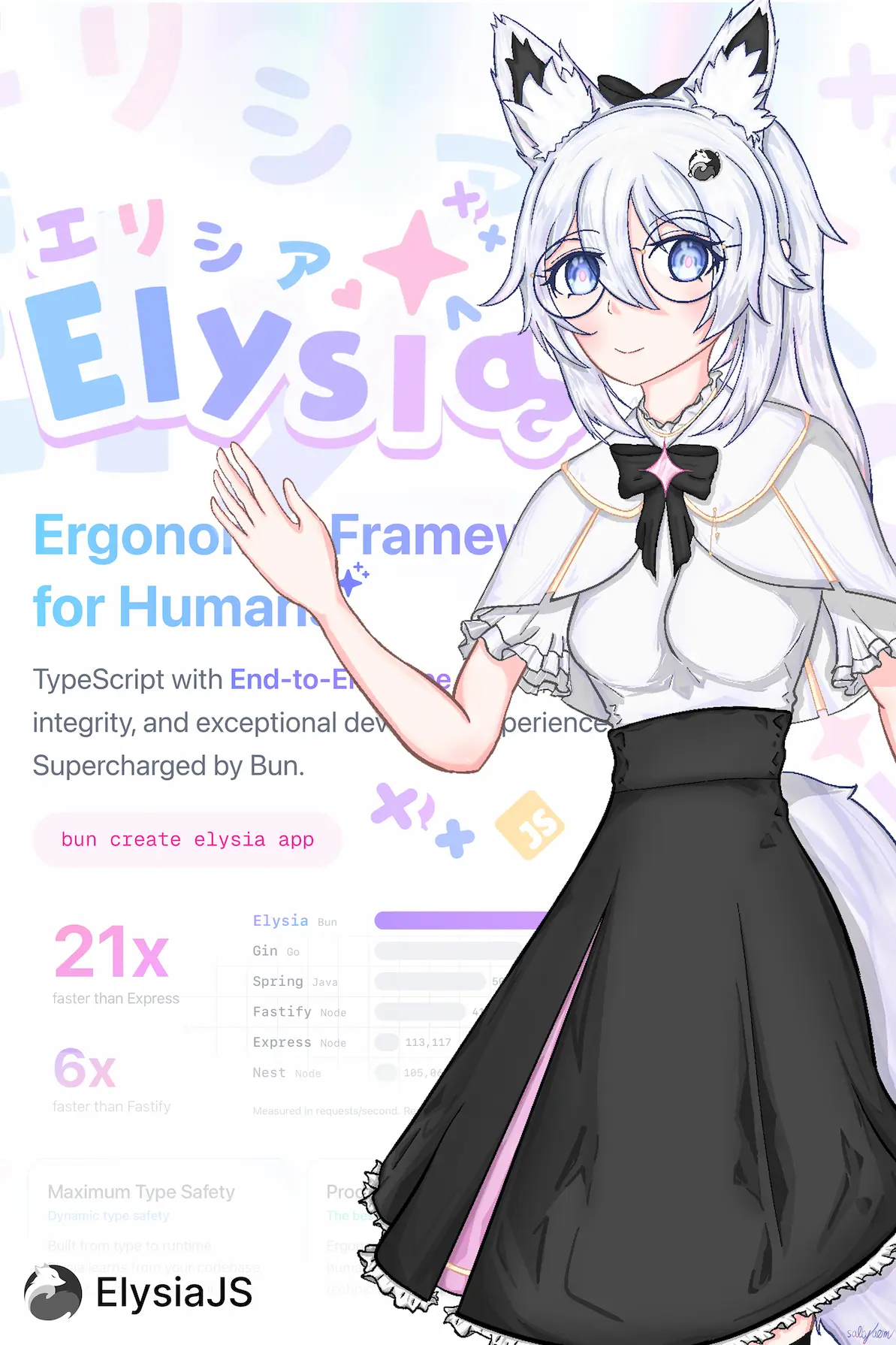主题
挂载
¥Mount
WinterCG 是一个 Web 互操作运行时的标准。Cloudflare、Deno、Vercel Edge Runtime、Netlify Function 以及其他各种工具均支持此功能,它允许 Web 服务器在使用 Web 标准定义(如 Fetch、Request 和 Response)的运行时之间互操作运行。
¥WinterCG is a standard for web-interoperable runtimes. Supported by Cloudflare, Deno, Vercel Edge Runtime, Netlify Function, and various others, it allows web servers to run interoperably across runtimes that use Web Standard definitions like Fetch, Request, and Response.
Elysia 符合 WinterCG 标准。我们已针对 Bun 进行了优化,但如果可能的话,也会公开支持其他运行时。
¥Elysia is WinterCG compliant. We are optimized to run on Bun but also openly support other runtimes if possible.
理论上,这允许任何符合 WinterCG 标准的框架或代码一起运行,从而允许 Elysia、Hono、Remix、Itty Router 等框架在一个简单的函数中一起运行。
¥In theory, this allows any framework or code that is WinterCG compliant to be run together, allowing frameworks like Elysia, Hono, Remix, Itty Router to run together in a simple function.
秉承这一理念,我们为 Elysia 实现了相同的逻辑,引入了 .mount 方法,使其能够与任何兼容 WinterCG 的框架或代码一起运行。
¥Adhering to this, we implemented the same logic for Elysia by introducing .mount method to run with any framework or code that is WinterCG compliant.
挂载
¥Mount
使用 .mount,只需传递 fetch 函数:
¥To use .mount, simply pass a fetch function:
ts
import { Elysia } from 'elysia'
const app = new Elysia()
.get('/', () => 'Hello from Elysia')
.mount('/hono', hono.fetch)Fetch 函数是一个接受 Web 标准请求并返回 Web 标准响应的函数,其定义如下:
¥A fetch function is a function that accepts a Web Standard Request and returns a Web Standard Response with the definition of:
ts
// Web Standard Request-like object
// Web Standard Response
type fetch = (request: RequestLike) => Response默认情况下,此声明用于:
¥By default, this declaration is used by:
Bun
Deno
Vercel Edge 运行时
Cloudflare Worker
Netlify Edge 函数
混合函数处理程序
等等
这允许你在单个服务器环境中执行所有上述代码,从而可以与 Elysia 无缝交互。你还可以在单个部署中重用现有函数,从而无需使用反向代理来管理多个服务器。
¥This allows you to execute all the aforementioned code in a single server environment, making it possible to interact seamlessly with Elysia. You can also reuse existing functions within a single deployment, eliminating the need for a reverse proxy to manage multiple servers.
如果框架还支持 .mount 函数,则可以无限嵌套支持该函数的框架。
¥If the framework also supports a .mount function, you can deeply nest a framework that supports it.
ts
import { Elysia } from 'elysia'
import { Hono } from 'hono'
const elysia = new Elysia()
.get('/', () => 'Hello from Elysia inside Hono inside Elysia')
const hono = new Hono()
.get('/', (c) => c.text('Hello from Hono!'))
.mount('/elysia', elysia.fetch)
const main = new Elysia()
.get('/', () => 'Hello from Elysia')
.mount('/hono', hono.fetch)
.listen(3000)复用 Elysia
¥Reusing Elysia
此外,你可以在服务器上复用多个现有的 Elysia 项目。
¥Moreover, you can re-use multiple existing Elysia projects on your server.
ts
import { Elysia } from 'elysia'
import A from 'project-a/elysia'
import B from 'project-b/elysia'
import C from 'project-c/elysia'
new Elysia()
.mount(A)
.mount(B)
.mount(C)如果传递给 mount 的实例是 Elysia 实例,它将自动解析为 use,默认提供类型安全并支持 Eden。
¥If an instance passed to mount is an Elysia instance, it will be resolved with use automatically, providing type-safety and support for Eden by default.
这使得可互操作的框架和运行时成为现实。
¥This makes the possibility of an interoperable framework and runtime a reality.
